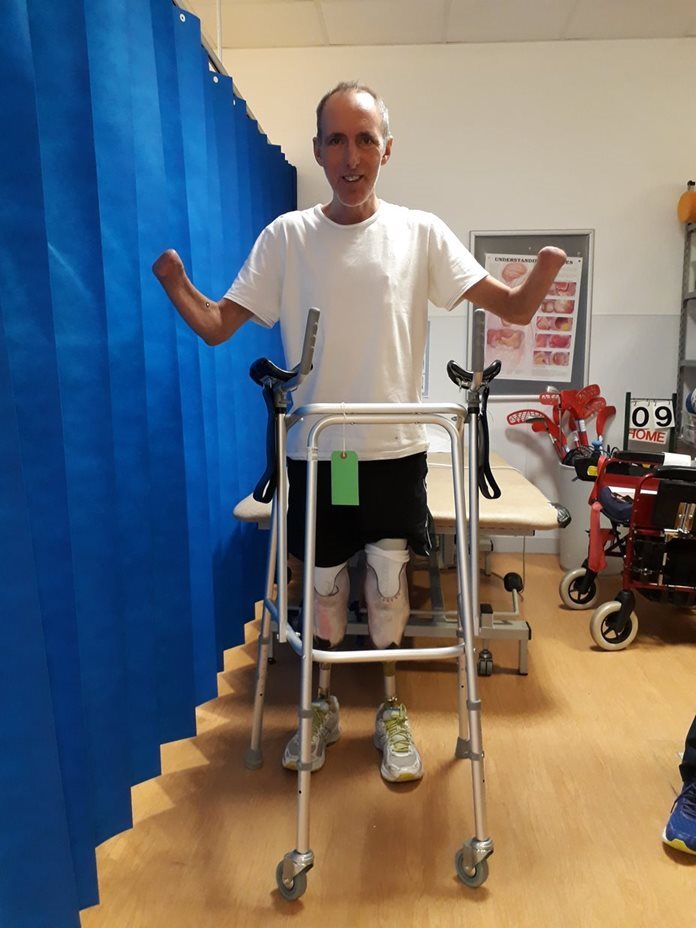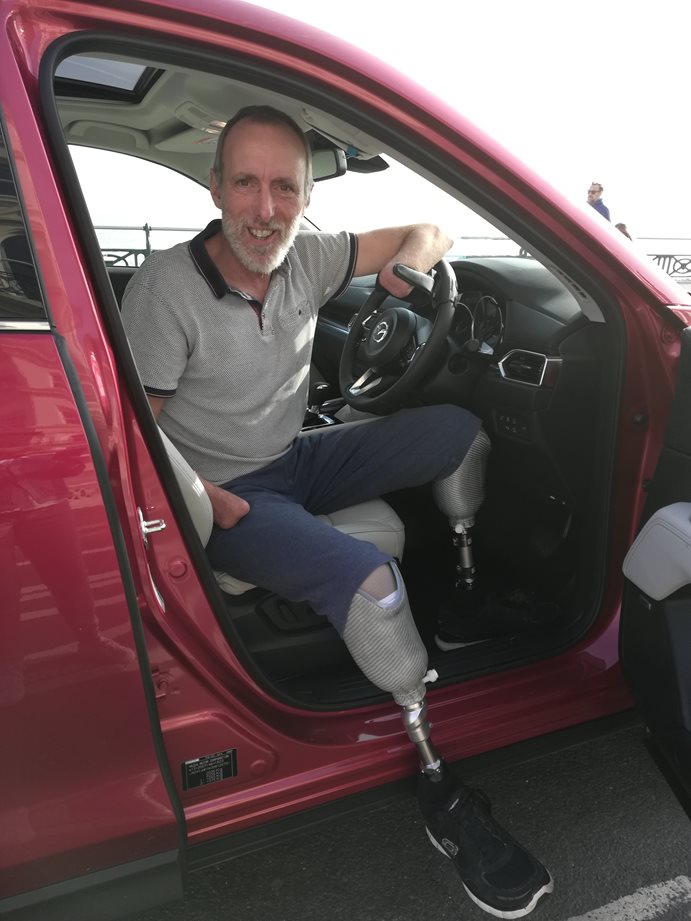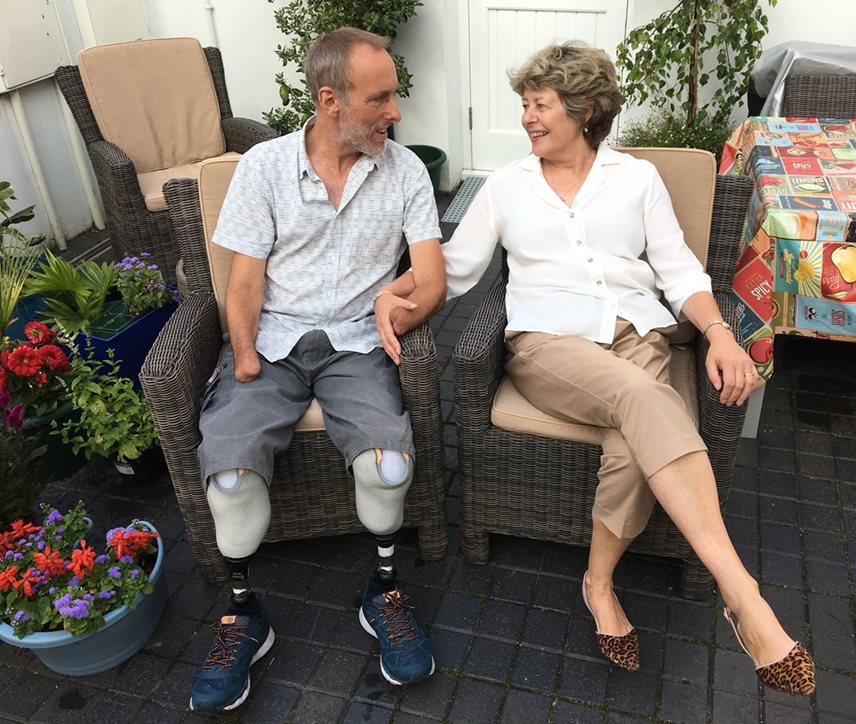The psychological impact of meningitis and sepsis can be profound. In this guest post, MRF Ambassador Mike Davies explains his psychological journey after losing four limbs.
A process of grief
As soon as I had been woken from 70 days in intensive care I wanted to get back as much mobility and independence as I could. Even whilst unconscious, the physiotherapist had manipulated my body, and we continued the exercises throughout my wound healing in the excellent Royal Sussex County Hospital. The goal was to be as fit as possible, ready for rehabilitation - a focus that lifted my spirits. My fantastic wife Julie lifted my spirits enormously too, visiting me for 111 days in a row.
It is a grieving process when you lose a limb; grief for the loss itself and for what you no longer can do. Everyone’s grieving is a little different and takes as long as is necessary. I can now see the often listed stages I went through: denial that anything actually happened, anger that it happened to me, bargaining for the return of limb if I only do better, depression at my situation, and yes, eventually acceptance and peace with how I now am.
However, those stages came in anything but a listed order - what a roller-coaster!

After six weeks of healing I was given an in-patient position at The Douglas Bader Rehabilitation Centre, Queen Mary’s Roehampton. A new set of goals; working 6 hours a day in the walking gym to strengthen my core and learn to walk again. There was tremendous camaraderie; we spurred each other on during exercises and helped make sense of it all in the evenings, discussing our individual stories. It turned out that I was the only one equipped with a powered wheelchair. Each morning the 400 yard trip to the gym saw me in the lead towing up to five fellow patients in a train behind me, each holding on to the wheelchair in front. It raised a lot of laughter as we snaked through the hospital reception area.
Day by day
Then in June 2018 I came home. There were adaptions to be made in the house, particularly grab posts to help me up the stairs and the installation of a bio-bidet – a toilet that gives you back your dignity by washing and drying you after use. But without all that focus on healing, strengthening and learning at hospital I found reality at home very different and very difficult. Tiredness was ever present as my body continued to carry the effects of 6 months in hospital. I used to sit on the edge of my bed at night, take my legs off and wonder how on earth I was going to get through the next day.
Exhaustion meant sleep came easily. My dreams were always without limb-loss – happily pursuing the activities that had been so natural for all of my life. In the morning it became more and more tempting just to stay in bed. In that warmth I could feel as though my limbs were still there. I could feel safe. I could feel as though nothing had happened to me… until reality dawned each day, and with it the most overwhelming depressive feelings of despair. Sleep became avoidance of reality – at night and during the daytime.

One day I flatly refused to get out of bed to attend hospital for the necessary and life-saving dialysis I was having three days a week. With chronic kidney disease, refusing dialysis ultimately results in deterioration and death. However it is not classed as suicide. There it was – a legal way out of the misery I was suffering and the misery I felt I was causing to my loved ones. I did not realise at the time how much my actions were creating the misery for my family. They made sure I got to dialysis.
Benefits of counselling
The greatest thing to happen to me then was to be offered counselling through the hospital renal department. Angela has become my guiding Angel. It was so good at first just to have a third-person, not family, to listen and share my grieving. To remind me what a huge thing had happened to me…
- “Your family will still see you just as you were before. Not diminished.”
- “It is great that you are all able to talk.”
- “You have been through a lot and there are many layers to it.”
- “You have lost a lot, including employment at the same time.”
- “Do recognise the depression being there, observe it. You can let it be as it will pass."
Angela encouraged me to recognise the little victories, each a positive step forward. I talked too with my GP, and now still take a maintenance dose of antidepressants. Slowly, my depression lifted enough to allow the little victories to become the new me.
In my darkest moments I would think, how would I ever shower, toilet, eat breakfast, drink tea, go shopping, walk places, catch a bus? But overcoming each of these challenges was another little victory. I learned to accept my situation and be at peace with it. In fact, I am really pleased with the new me, and find I take on greater challenges all the time - to drive a car again, give talks in public, go live on radio, go on TV, become an ambassador for a charity (MRF of course).
There are so many new things to experience in life, so many challenges. It’s not “I can’t” … it is “how can I?”
